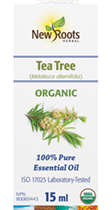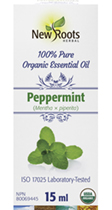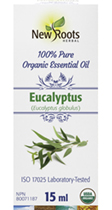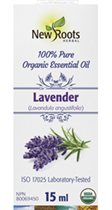Origins of Essential Oils
Herbs and plants have long been used to help relieve ailments, their causes, and their symptoms. In modern medicine, the story is a little different, as physicians began using synthetic drugs to alleviate symptoms rather than treat the actual cause. Momentary relief is provided, but the person never actually heals. The history of essential oils dates back thousands of years. Carbon-dated, 20 000-year-old cave paintings of paleolithic people in Lascaux, France, suggest the use of medicinal plants in everyday life. Furthermore, in many public records and studies, we can learn how Egyptians used essential oils, balms, perfumed oils, scented barks, resins, spices, and aromatic vinegar daily. They even had a god called Nefertum, the god of Perfume and Healing. The oils had all sorts of applications, ranging from purification of the soul to celebration of gods, mummification for passage to the “afterlife”, personal hygiene, and even for sun protection.
Humans became aware of the healing powers of herbs by pure instinct resulting from survival, as well as by observation. The discovery of a Neanderthal burial site in Shanidar, Iraq, helped many scientists and researchers understand the historical importance of plants and flowers. Pollen samples taken from wild flowers were found close to the bodies of the deceased.
Eventually, manuals on herbs became increasingly popular and showed their use throughout history. The first manual published on herbs and plants, called Le Grant Herbier (in French), was printed in Paris by Pierre Le Caron in the late fifteenth century. Le Grant Herbier is a medieval pharmacopoeia which lists a large number of plants with their medicinal virtues. This was a leap in the right direction that led to the recording and understanding of many medicinal plants and their uses.
The Beginning of Aromatherapy and Use of Essential Oils in Modern Times
Essential oils are used by many different cultures all over the world. In 1937, the French chemist and perfumer René-Maurice Gattefossé coined the term “aromatherapy.” Interestingly enough, he did not believe in the natural health movement at first. However, he became very interested in essential oils after he suffered a serious burn on his hands during an experiment, where he immediately immersed his burnt limbs into the nearest bath of liquid, which happened to be lavender essential oil. Later, he astonishingly observed that the burn had healed very quickly and left virtually no scar. He became fascinated by this outcome and so began his in-depth research on essential oils. This inspired him to experiment with essential oils on soldiers who were in military hospitals during the First World War. He used lavender, thyme, lemon, and clove oils for their antiseptic properties. His work, including the book Aromathérapie. Les Huiles essentielles, hormones végétales (Aromatherapy. Essential Oils, Plant-Based Hormones), mentions cures of skin cancer, facial ulcers, gangrene, and black widow spider bites.
How Are Essential Oils Made?
Oils are extracted in different ways. Most extraction techniques are based on the fact that the majority of essential oils mix with oils, fats, alcohol, and certain solvents, but not with water. Most pure essential oils are extracted from plants through steam distillation.
Uses for Maximum Absorption
The skin, being our largest organ, makes it easy for many nutrients or toxins to get quickly absorbed. Several studies have shown that close to 60% of topical products applied to the skin are directly absorbed into the bloodstream. Therefore, massaging your body with essential oils for healing is very beneficial. The skin is permeable to fat-soluble substances and relatively impermeable to water-soluble substances. You can use carrier oils that are less thick for faster penetration, such as grape-seed oil.
Another way to reap the benefits from essential oils is through inhalation. Inhalation results in stimulation of the limbic system. The limbic system’s nerve impulse leads to other areas of the brain that are responsible for secreting hormones, helping with metabolism and body functions. There are two methods to achieve this: By using an aroma diffuser to diffuse the scent, or by covering your head with a towel over a bowl of steaming hot water with drops of essential oils, inhaling the steam; a routine that is most effective before bedtime. You may also hold the bottle of desired essential oil close to your nostrils for a similar therapeutic effect.
Health Benefits of Essential Oils
Essential oils are used by massage therapists, nurses, reflexologists, beauticians, etc. Through steam, vaporizers, or sprays, the oils can also be added to your bath. Due to their numerous health benefits, essential oils are increasingly being explored by the scientific community for the treatment of a variety of diseases such as cancer, HIV, asthma, bronchitis, strokes, alopecia, anxiety, hormonal imbalances, depression, insomnia, and pain, among others.
The Top 10 Must-Have Oils!
My emergency kit includes the following essential oils. I encourage people to invest in them to prevent ailments and to support the body’s natural healing system.
- Oregano helps alleviate colitis, diarrhea, gastritis, allergies, bacterial and viral infections, and the common cold.
- Lavender is recommended for headaches, insomnia, depression, and nausea.
- Eucalyptus helps fight coughs, common colds, influenza, etc.
- Chamomile is very effective with burns, arthritis, menstrual and menopausal symptoms, and digestive problems.
- Peppermint is an excellent remedy for nausea, headache, and motion sickness.
- Tea tree helps alleviate common colds, bronchitis, and abscesses, and is a powerful antiseptic. It can also be used as a household cleaning agent.
- Thyme relieves gas, intestinal worms, and hair loss such as Alopecia areata.
- Rosemary decreases intestinal gas and fluid retention. It also helps to fight influenza and is a good antiseptic.
- Ginger helps with indigestion, nausea, PMS, and inflammation, and it improves joint conditions.
- Clove is an antibacterial, antiparasitic, and antifungal agent. It can also be used for tooth pain as well as a mouthwash.
 Dayana Deschamps, BSc, Clr, CHHP
Dayana Deschamps, BSc, Clr, CHHP
Dayana is a certified holistic health practitioner, certified iridologist,
certified live blood cell analyst, and a PhD candidate in natural
medicine, teacher, blogger, and creative model.

 Stores
Stores



